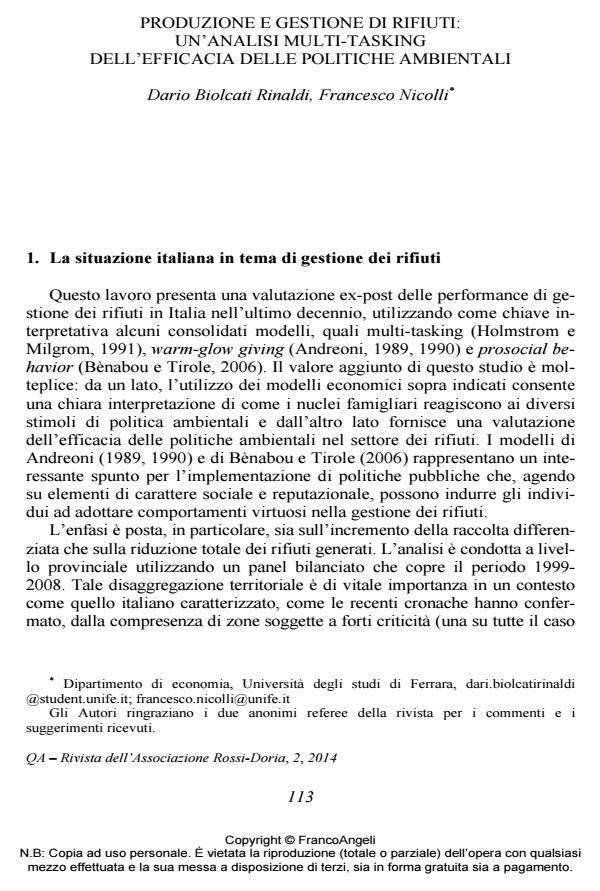Produzione e gestione di rifiuti: un’analisi multi-tasking dell’efficacia delle politiche ambientali
Journal title QA Rivista dell’Associazione Rossi-Doria
Author/s Rinaldi Dario Biolcati, Francesco Nicolli
Publishing Year 2014 Issue 2014/2
Language Italian Pages 28 P. 113-140 File size 159 KB
DOI 10.3280/QU2014-002004
DOI is like a bar code for intellectual property: to have more infomation
click here
Below, you can see the article first page
If you want to buy this article in PDF format, you can do it, following the instructions to buy download credits

FrancoAngeli is member of Publishers International Linking Association, Inc (PILA), a not-for-profit association which run the CrossRef service enabling links to and from online scholarly content.
Waste Generation and Disposal: A Multi-Tasking Approach to Policy Effectiveness This paper assesses the effectiveness of Italian waste management policies over the period 1999-2008 both in increasing separate collection and in reducing waste generation, using as a theoretical framework the Multi-tasking model (Holmstrom and Milgrom, 1991). The main results show that the TIA (Municipal Waste Tariff) and the Italian landfill tax do not affect the amount of waste generated in Italy. Moreover, we show that both models of "pro-social behaviour" (Bènabou and Tirole, 2006) and "warm-glow giving" (Andreoni, 1989; 1990) can provide useful insight into the role of social capital in the waste sector. EconLit Classification: Q580, Q530, Q510
Keywords: Multi-tasking, Prosocial behavior, Warm-glow giving, Waste management, Recycling, Landfill tax
Rinaldi Dario Biolcati, Francesco Nicolli, Produzione e gestione di rifiuti: un’analisi multi-tasking dell’efficacia delle politiche ambientali in "QA Rivista dell’Associazione Rossi-Doria" 2/2014, pp 113-140, DOI: 10.3280/QU2014-002004